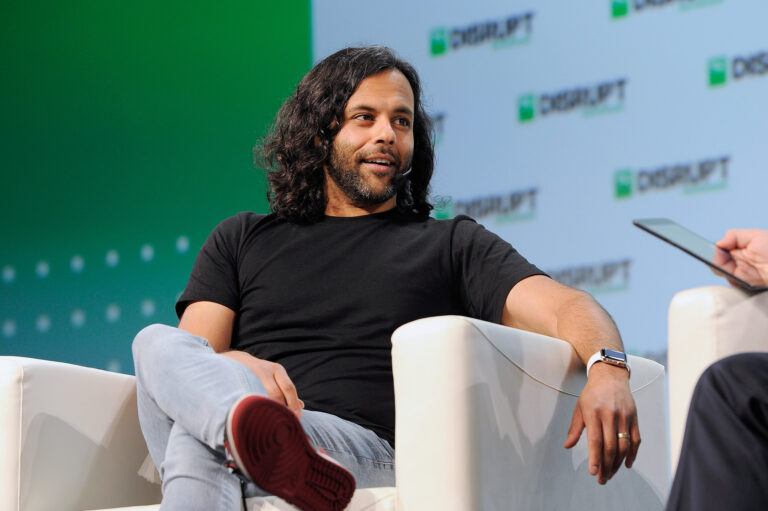On Thursday (6 September 2018), Baiju Prafulkumar Bhatt, the co-founder and co-CEO of Robinhood, the FinTech startup that launched a zero-commission crypto trading service (“Robinhood Crypto”) in February, said (during an interview at the TechCrunch Disrupt SF 2018 event in San Francisco) that his firm is preparing for an Initial Public Offering (IPO).
The Californian company, which was founded in 2013 by two former Stanford University students, Baiju Bhatt and Vlad Tenev, was named by LinkedIn on Thursday as the sixth best startup in the U.S. According to CNBC, “investors in its latest $363 million fundraising round included Sequoia, Google’s venture capital fund Capital G, DST Global and Iconiq, boosting its valuation to $5.6 billion”; in total, Robinhood has raised $539 million.
Robinhood lets customers in the U.S. to trade commission-free stocks, options, ETFs, and crypto. It makes money in three ways:
- Earning interest on funds held in customer accounts.
- Selling order flow to exchanges wanting additional liquidity.
- Selling subscriptions to “Robinhood Gold”, which costs $10 – $200 per month, and allows margin trading.
Bhatt says that Robinhood’s over five million customers use Robinhood’s website and/or mobile app ten times a day, and that over the past few years, Robinhood has transacted over $150 billion through its platform, saving its customers over a billion dollars in trading commissions.
When asked if Robinhood was planning to go public, Bhatt replied:
“Absolutely. It's something that we are thinking about in the medium to long term, and actually to that point, one thing that we're excited to mention in this is that we're actively looking for a CFO right now. It's something that we think is very much in the future for Robinhood. Being a public company aligns very closely with our mission as well, and is definitely on the horizon.”
He added Robinhood is undergoing constant audits from FINRA, the U.S. SEC, and its security team to make sure that it is doing everything correctly:
“As a financial institution that is regulated by FINRA, the SEC, regular dialog with the Treasury, every financial regulator in the U.S., you name it, we work with them pretty closely… Has really given our business a really strong sort of audit and financial governance set of requirements to meet well before being a public company, and so our fiancials are audited every year, our security practices are audited every year…”
With regard to their crypto trading service, Bhatt was told that when it launched in February 2018, Ether (ETH) was trading around $849, and now (on September 6th, when the interview was taking place) it was at $286, and asked if he felt any “moral pangs or sense of regret about opening crypto to mainstream investors”. Bhatt answered:
“So, on the topic of price, looking at the price of cryptocurrencies, very candidly, [it] is not something I do on a day to day basis. We opened up Robinhood Crypto to customers in the U.S. because we thought that this was a big change that is coming to the financial system, and we wanted to make sure that if this was something customers were going to do, that yesterday's business model didn't follow tomorrow's financial system… And whether the price goes up or down, we still believe that this is something that is going to matter long term. So, we feel strong about our offering here.”
Last month, as covered by CryptoGlobe, Robinhood announced that it was adding support for trading Etherium Classic (ETC) to Robinhood Crypto, meaning that customers could now invest commission-free in Bitcoin, Ethereum, Bitcoin Cash, Litecoin, Dogecoin, and Ethereum Classic.
Featured Image Credit: Photo by TechCrunch via Flickr; licensed under “CC BY 2.0”









